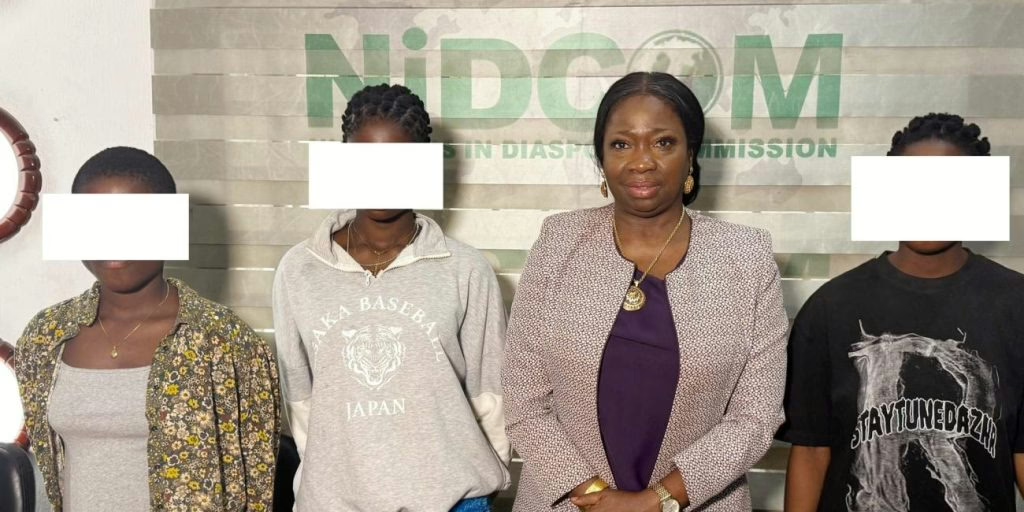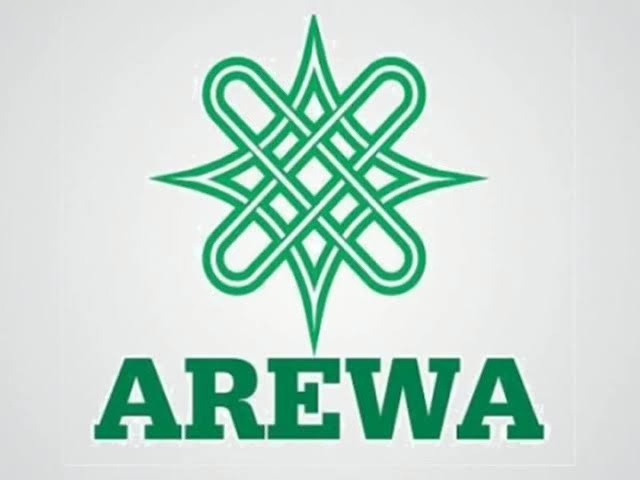The Nigerians in Diaspora Commission (NIDCOM) has successfully rescued 200 young Nigerian girls from human trafficking operations over the past four months, in collaboration with the Nigeria in Diaspora Organisation (NIDO).
The Chairperson of NIDCOM, Abike Dabiri-Erewa, disclosed this during the reception of three recently rescued girls from Ghana on Thursday in Lagos.
The survivors include two cousins, aged 17 and 19, from Bayelsa State, and an 18-year-old from Akwa Ibom. Their rescue was made possible through joint efforts involving NIDO Ghana, the National Agency for the Prohibition of Trafficking in Persons (NAPTIP), the Nigerian High Commission in Ghana, the Ghanaian Police, and the Office of Nigeria’s First Lady.
Dabiri-Erewa expressed concern over the persistent vulnerability of young girls to traffickers, despite ongoing public sensitisation campaigns. She stressed that parents and guardians must be vigilant and aware of the company their children keep, as traffickers are often people known to the victims.
“It’s often someone familiar who convinces them not to inform anyone. That’s why we urge parents to be observant and protective,” she said.
According to her, about 200 Nigerian girls have been rescued from Ghana since January with assistance from NIDO Ghana, led by Chief Calistus Elozieuwa. Four individuals linked to the most recent case have been arrested and will face legal action, she confirmed.
The three girls are now in the custody of NAPTIP, where they will be profiled and later reunited with their families for rehabilitation and reintegration.
“Ten more survivors are still in Ghana and will be brought back soon,” Dabiri-Erewa added. “NIDCOM plays a key role in supporting logistical efforts, while agencies like NAPTIP lead the process of identifying traffickers and prosecuting offenders.”
One of the girls recounted how she and her cousin were deceived by an aunt who promised them jobs in a boutique and bar in Ghana. Upon arrival, they were ordered to engage in street prostitution after just one night of rest. When they refused, their living conditions deteriorated, prompting them to escape.
“A man saw us walking aimlessly and took us to the police, who later handed us over to Chief Calistus,” one of the girls shared.
The other survivor from Akwa Ibom had a similar experience, explaining that her aunt promised her work in a supermarket but forced her into prostitution. She endured daily beatings for resisting until she finally complied. A fellow victim later escaped, alerted the police, and helped secure the rescue of the others.
Dabiri-Erewa reiterated the urgent need for stronger awareness campaigns and continued collaboration among government agencies and diaspora groups to combat trafficking.
“Our job is to stand by these innocent girls and help them find hope again,” she said.











Leave a Reply